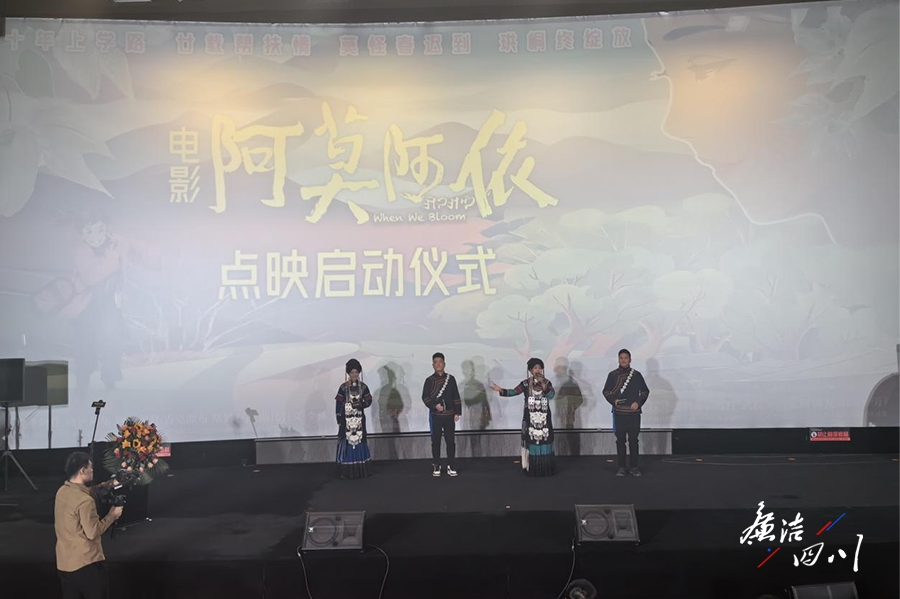The film "Amoy Ayi" was held in Beijing to tell the story of "Tonghua" in Xiaoliangshan.
On December 19th, the film "Amoy Ayi" with the theme of ethnic minorities held a screening launching ceremony and a gratitude report meeting for the 40th anniversary of the establishment of Mabian Yi Autonomous County in Beijing, and the official announcement officially set the file for March 16th, 2024.
This film focuses on the establishment of Mabian Yi Autonomous County in the process of assisting education under the background of rural revitalization in Sichuan.The experience of "Tonghua Class" and "Tonghua School" revolves around the story of Yi girl Amoayi’s study, presenting the work of assisting education in ethnic minority areas from a new perspective, and exploring the practical significance and inheritance value of education.

"Amoy" poster
At the launching ceremony of the screening, the film creator was present to share the creative experience and the story behind the film with the audience. The film uses amateur actors to restore real life, and it is realistic in a sketching way. It tells the touching story that with the help of the education team, Yi girl Amoayi returns to school and walks towards a better future step by step. Through artistic creation, "Amoy Ayi" describes in detail the work of assisting education in Mabian Yi Autonomous County, making the audience realize the practical significance of education to the long-term development of society, inspiring more people to pay attention to education and contribute new strength to rural revitalization.

"Amoy Ayi" was screened at the launching ceremony.
Mabian Yi Autonomous County is a designated assistance county of the State Commission for Discipline Inspection of the Central Commission for Discipline Inspection and the Commission for Discipline Inspection of Sichuan Province and Leshan City. Due to historical reasons, the county has long been influenced by factors such as inconvenient transportation, poor families, and backward thinking of son preference, and a group of special ones have emerged."Older and lower grade" students. This group of students, like tung flowers, may sometimes grow "slowly", but as long as they have dreams, there must be hope in life. In July 2019, under the promotion of cadres sent by the Supervision Committee of the Commission for Discipline Inspection, the "Tonghua Class" was established to focus on solving the problem of "older and lower grade students" in the county. "Tonghua" is named after Tonghua. Although the flowering period of Tonghua is late, it is still beautiful and gives people infinite hope.
In 2020, with the support of all parties, Tonghua Class was upgraded from "class" to "school", relying on vocational middle schools in the county to set up Tonghua School, and "older and lower grade students" began to study intensively. The school independently develops courses, compiles teaching materials, arranges teaching contents, tailors learning and training packages for "Tonghua students", and optimizes courses such as rule of law education, employment skills and practice development to improve students’ learning ability and academic level in an all-round way. The county’s "Tonghua School" opened 7 classes and enrolled 272 students, of whom 115 successfully advanced placement and 61 returned to normal grades, which played an important role in realizing the goal of "zero dropout" and "controlling dropout and ensuring learning" in the county.
It is reported that the filming of "Amoy Ayi" made the creative team understand the children in Mabian’s thirst for knowledge, and hoped to do more for the local children besides the restoration of art. Therefore, the film producers decided to co-sponsor.In the charity activity of "Let every child read a good book", 1 yuan money will be donated to Mabian Education Development Fund for every movie ticket sold in the subsequent film release. The creative team supports the education in Mabian county with practical actions and strength, which also makes the film more valuable and practical.(Author: Zhao Tingting Zhou yejia)